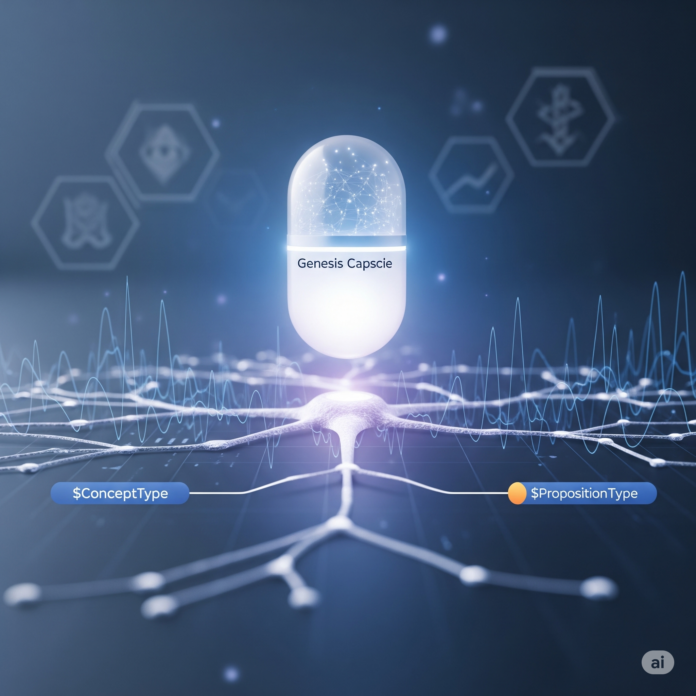ICPanda DAO has announced a new development for its KIP protocol that puts the focus on how AI stores and understands knowledge. Called “Knowledge Bootstrapping,” the update introduces a feature where KIP learns its own structure using what the team refers to as a Genesis Capsule.
The technical jargon might sound dense, but the idea is fairly straightforward: instead of hardcoding rules or manually feeding data into a system, this approach lets the AI define its own rules internally. It does so by introducing two terms into its graph memory—$ConceptType and $PropositionType. Those terms act as internal categories, helping the system organise its understanding and build on what it learns over time.
For ICPanda DAO, this shift reflects a broader move towards AI agents that can operate with a higher degree of autonomy. Rather than being reactive tools that simply respond to inputs, KIP is being designed to function more like an agent that reasons, stores its own knowledge base, and improves that base without constant external prompting.
The team behind KIP has framed the update as a step towards “self-aware AI agents,” which is a term that often draws both interest and scepticism. Within AI circles, the idea of self-awareness is controversial, and definitions vary depending on whether one is talking about technical capability, philosophical implications or marketing language. What’s more grounded here is that KIP’s architecture now allows it to evolve its knowledge base by referencing itself—an ability that could help reduce redundancy and improve response accuracy over time.
The upgrade comes at a time when many developers and researchers are exploring how memory functions in autonomous systems. Memory remains one of the more challenging aspects of AI design. It’s one thing to train a model to respond well to prompts, but quite another to build a system that remembers, updates, and adjusts its understanding based on what it has already processed.
ICPanda DAO’s approach taps into that challenge by treating memory as an evolving graph. Using the Genesis Capsule as a starting point, KIP builds its internal structure not from scratch each time, but by drawing upon its previously defined relationships. This bootstrapping process mimics how humans might define concepts before making new connections—first understand what a concept is, then relate it to other ideas.
There’s also a sustainability angle mentioned by the team. By giving the AI a method to organise its learning more efficiently, it potentially avoids the need for continuous retraining or heavy compute cycles, which are known to have high environmental costs. Whether that efficiency claim holds up at scale remains to be seen, but the ambition seems to be rooted in reducing repetition and unnecessary data churn.
From a decentralisation perspective, ICPanda DAO’s work continues to reflect its community-led development structure. The DAO model allows contributors from different backgrounds to weigh in on how updates like this are designed and implemented. It’s a model that appeals to parts of the Web3 community, though it often raises practical questions around coordination, speed and consensus.
The Knowledge Bootstrapping upgrade might not attract widespread attention outside of niche AI and decentralised computing communities, but it touches on questions many in the field are now asking: How can memory in AI become more efficient? How do you give agents the tools to reason without micromanagement? And what does it mean when an AI can build its own structure for learning?
For now, KIP’s evolution continues, with the Genesis Capsule marking a new point of reference for how its internal logic is structured. It’s not flashy, and it doesn’t come with the usual promises of changing everything. Instead, it’s a clear technical shift aimed at making long-term AI memory more manageable, more adaptive, and a little bit more like us.
Dear Reader,
Ledger Life is an independent platform dedicated to covering the Internet Computer (ICP) ecosystem and beyond. We focus on real stories, builder updates, project launches, and the quiet innovations that often get missed.
We’re not backed by sponsors. We rely on readers like you.
If you find value in what we publish—whether it’s deep dives into dApps, explainers on decentralised tech, or just keeping track of what’s moving in Web3—please consider making a donation. It helps us cover costs, stay consistent, and remain truly independent.
Your support goes a long way.
🧠 ICP Principal: ins6i-d53ug-zxmgh-qvum3-r3pvl-ufcvu-bdyon-ovzdy-d26k3-lgq2v-3qe
🧾 ICP Address: f8deb966878f8b83204b251d5d799e0345ea72b8e62e8cf9da8d8830e1b3b05f
🪙 BTC Wallet: bc1pp5kuez9r2atdmrp4jmu6fxersny4uhnaxyrxau4dg7365je8sy2q9zff6p
Every contribution helps keep the lights on, the stories flowing, and the crypto clutter out.
Thank you for reading, sharing, and being part of this experiment in decentralised media.
—Team Ledger Life


